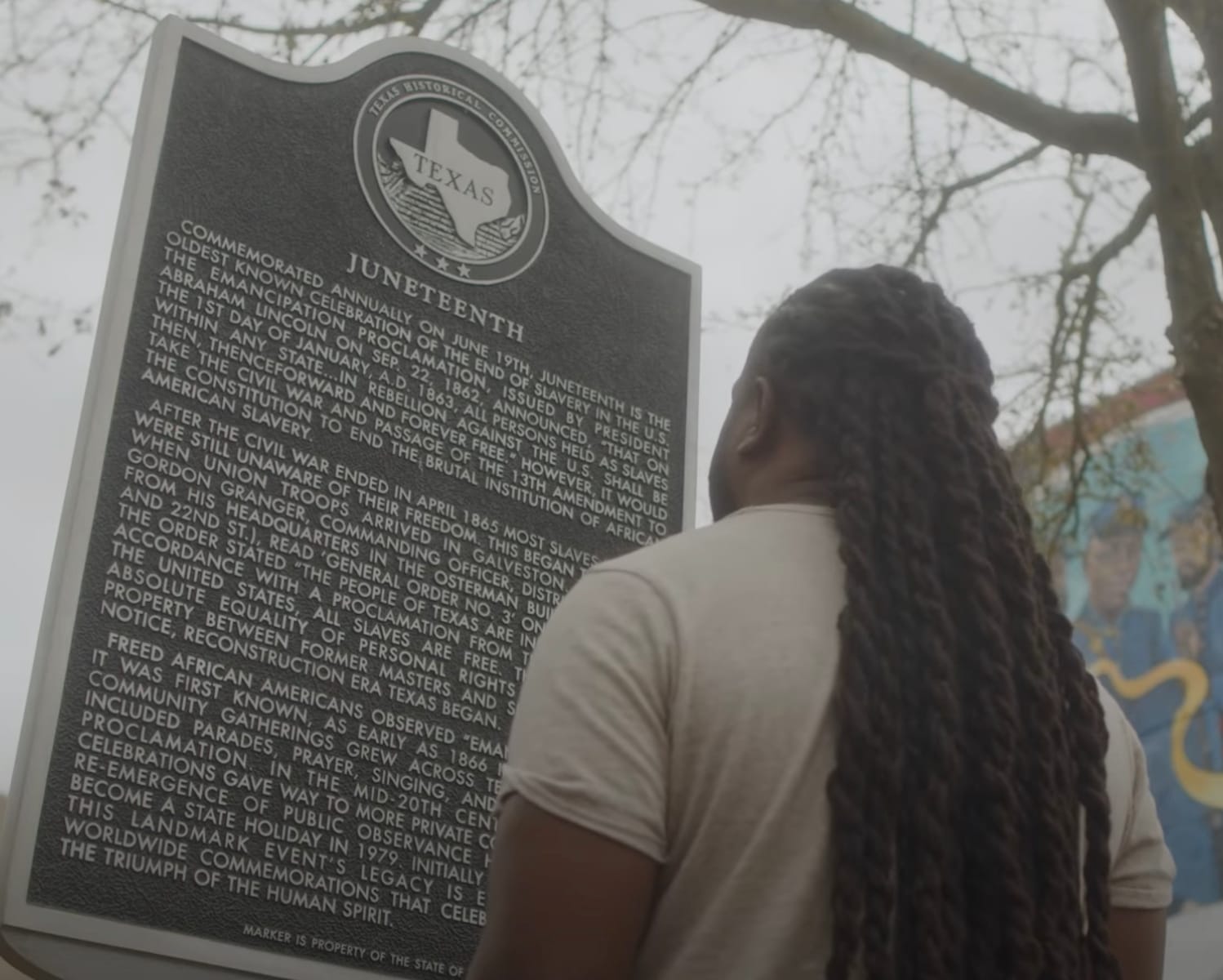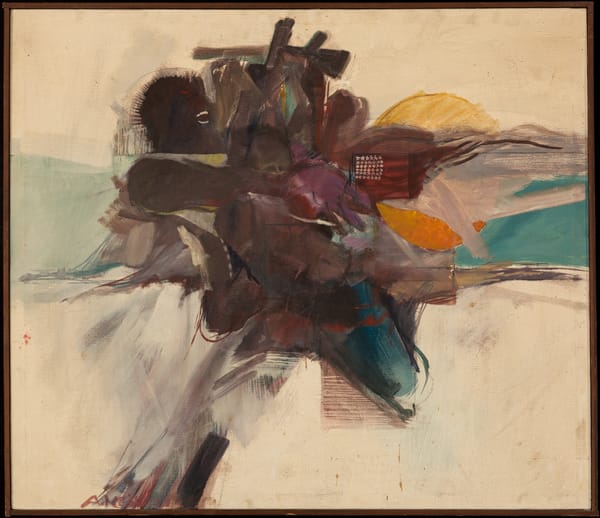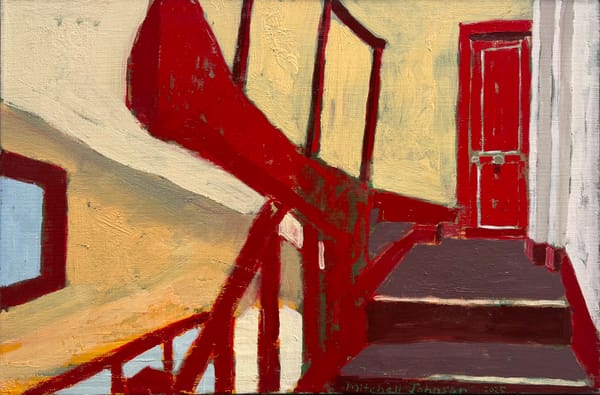A Juneteenth Documentary Explores Faith’s Role in Black Liberation
Juneteenth: Faith and Freedom (2022) is screening at the Brooklyn Public Library in Flatbush on Thursday, June 20.
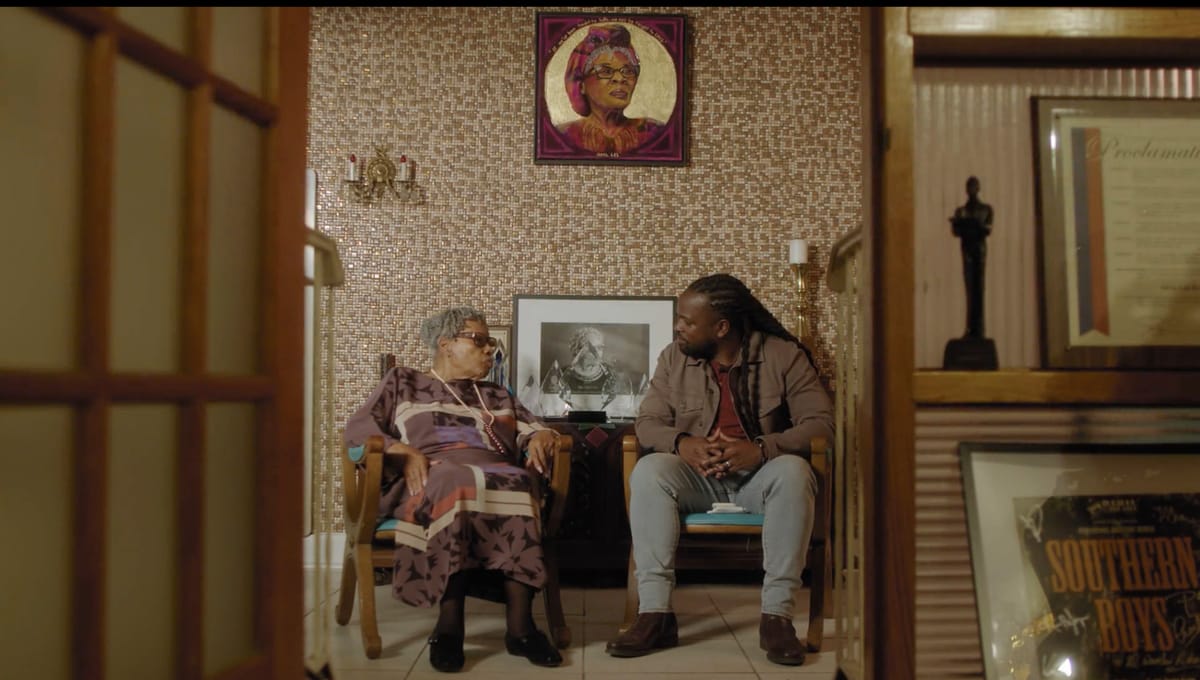
With Juneteenth around the corner, marking the historical event's third year as a national holiday in the United States, many around the nation are revisiting films, books, and histories that foster reflection on the day and its importance to the contemporary movement for racial justice. One recent example, screening at the Brooklyn Public Library's Flatbush location this Thursday, June 20, is the documentary film Juneteenth: Faith and Freedom (2022), which follows the pastor, educator, and descendant Rasool Berry as he travels across Texas to understand why we celebrate the holiday and the circumstances leading up to it.
Juneteenth is a portmanteau of "June 19th," the day in 1865 on which enslaved African Americans in Texas were officially informed of their freedom two and a half years after President Abraham Lincoln issued the Emancipation Proclamation that declared all enslaved people free in states that had seceded during the Civil War. Lincoln's proclamation was contingent on Union army victories and continued enforcement in Confederate territories, and failed to implement freedom in border states as well. The delay in freedom for African Americans in Texas is often attributed to slow-traveling news at the time, but it took the US army's arrival and Juneteenth announcement in Galveston Bay for the message to be received and enforced.
In the documentary Juneteenth: Faith and Freedom, produced by Our Daily Bread Ministries and distributed by PBS, pastor Berry examines how Christianity had been both weaponized against the enslaved in Texas, and also a source of strength as they navigated different stages of liberation from Juneteenth through today. Berry connected with various experts, scholars, and historians in the state to unpack the suppressive use of faith — especially through the distribution of a "slave Bible" with redactions of any sections or scriptures pertaining to freedom and rebellion.
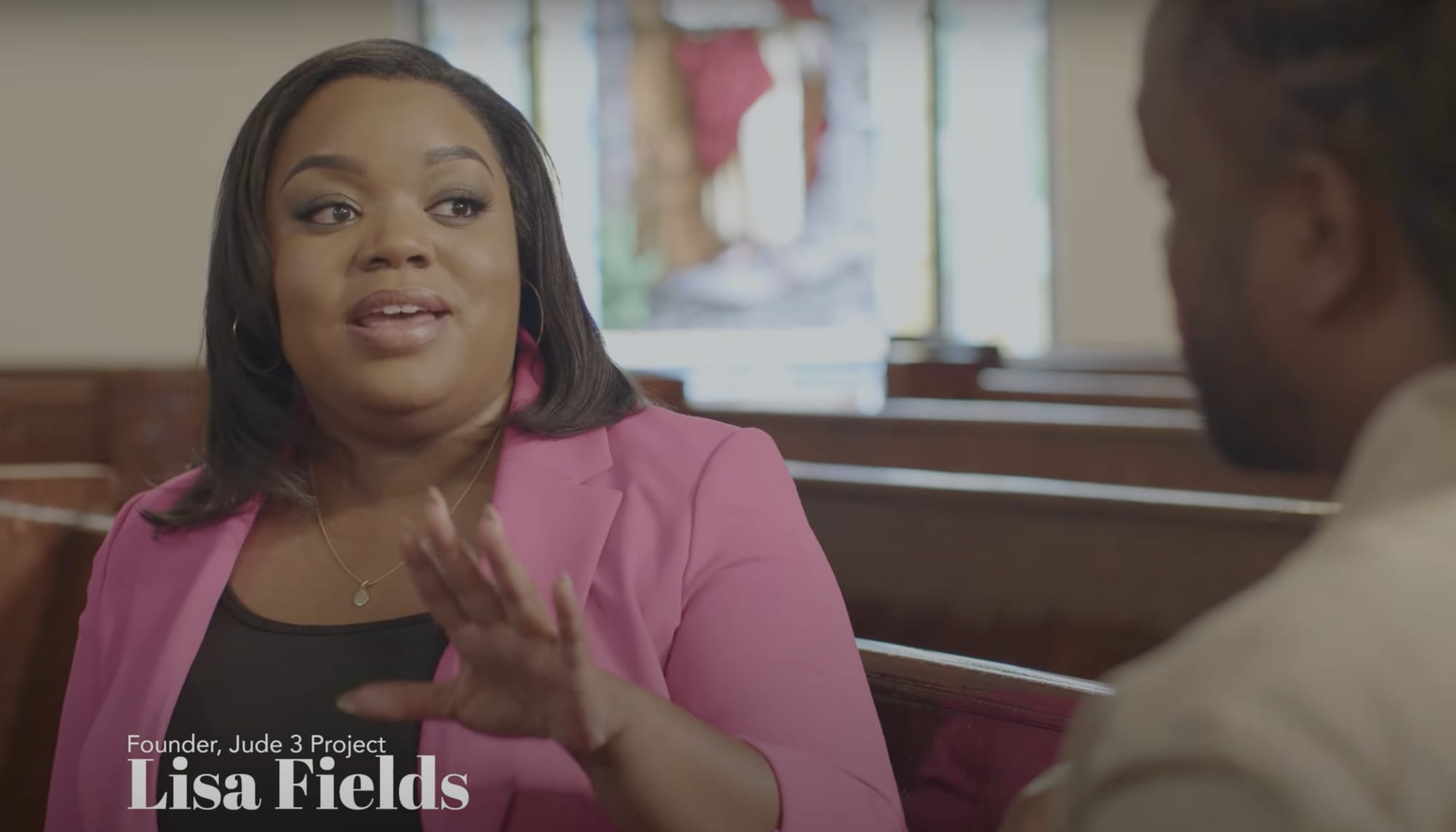
Berry also learned of the brutality enacted on the enslaved at various plantations, and connected with locals with generations of history in the area to dispel common myths surrounding Juneteenth and the Emancipation Proclamation that have been cemented over time through the Texas education system and by word of mouth over the years.
The documentary tackles common but incisive questions, including why Black Americans would adopt Christianity when it was the faith of the enslavers who controlled them and how that same religion became an even stronger source of reprieve and validation as enslavement morphed into economic and legal bondage.
Berry told Hyperallergic in an email that after learning about the history of Juneteenth, he fell in love with the holiday because "it reveals not only the trials and trauma of slavery, but the triumphs of formerly enslaved African Americans whose resilient faith and self-determination endured through it all."
"The documentary was made to offer us hope that though we still see injustice around us, we can find inspiration from the past as we fight for a better future," he continued.
As libraries are closed on Juneteenth proper in accordance with the federal holiday schedule, the documentary will screen at the Flatbush branch of the Brooklyn Library on Thursday, June 20, from 11am to 1pm. Anyone who is unable to attend can still stream Juneteenth: Faith and Freedom on the PBS website and YouTube as well.
